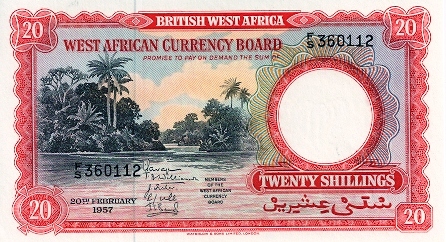1866
After restructuring, British West Africa is re-established with the colonial administrative capital placed in Freetown. The British colonial Governor-in-Chief oversees an area that will become The Gambia, Sierra Leone, Ghana and Nigeria. The British West African Pound is the common currency.













